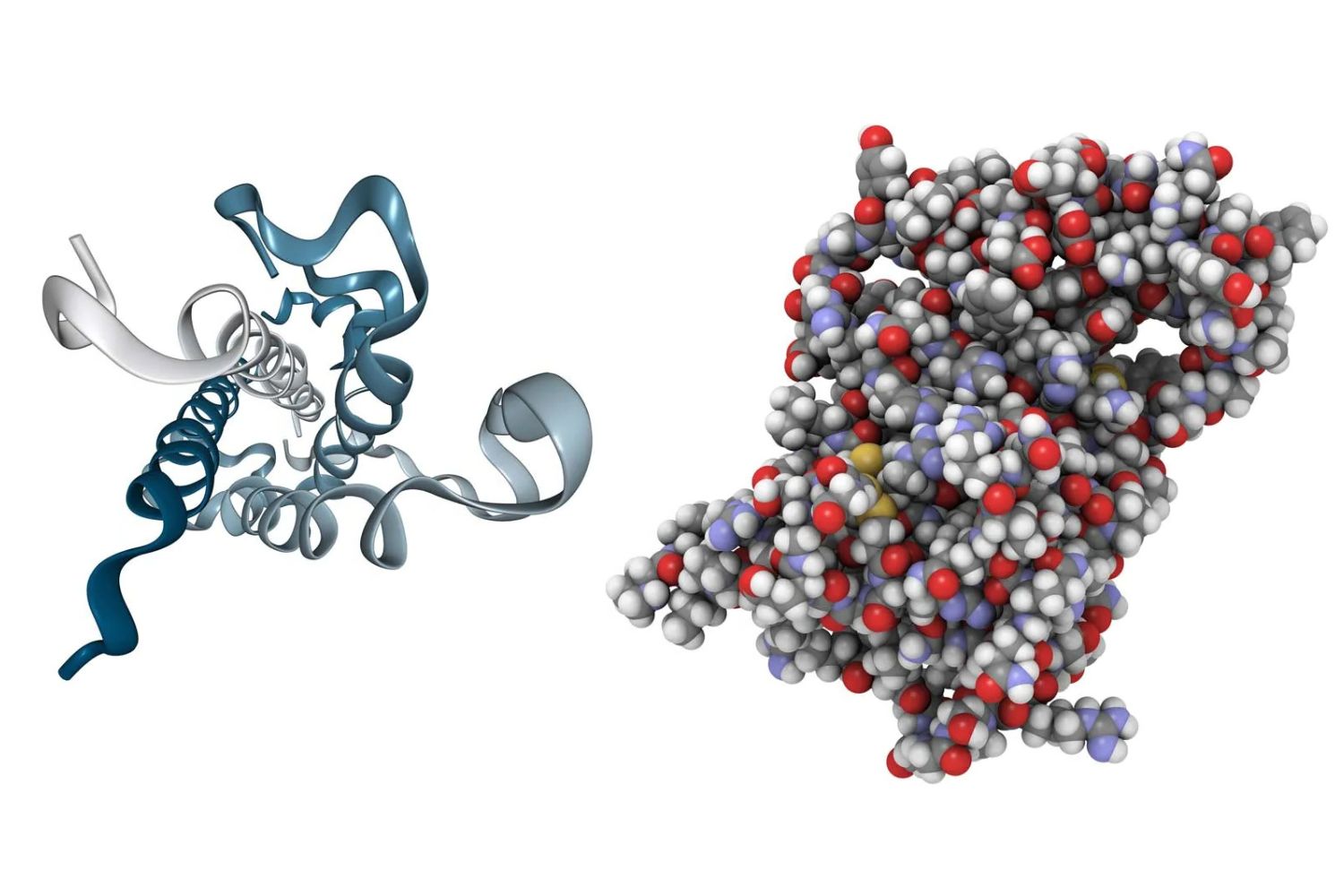
Peptidic growth factors deficiency can have significant impacts on health. These proteins play a crucial role in cell growth, development, and repair. When the body lacks these essential molecules, it can lead to various medical conditions. Symptoms might include delayed wound healing, impaired immune function, and developmental issues. Understanding the importance of these growth factors helps in recognizing the signs of deficiency early. This knowledge can guide effective treatments and interventions. In this post, we will explore 25 facts about peptidic growth factors deficiency, shedding light on its causes, symptoms, and potential treatments. Stay tuned to learn more about this vital aspect of human health.
Key Takeaways:
- Peptidic growth factors are tiny proteins that help our bodies grow, heal, and stay healthy. Without enough of them, we can have trouble healing, get sick more often, and even have trouble growing properly.
- Scientists are working hard to understand peptidic growth factors better and find new ways to treat deficiencies. They're exploring stem cells, new drugs, and even how these factors affect aging. Exciting advancements in medical science are on the horizon!
What Are Peptidic Growth Factors?
Peptidic growth factors are proteins that play a crucial role in regulating cell growth, proliferation, and differentiation. They are essential for various physiological processes, including wound healing, immune responses, and development.
- Peptidic growth factors are small proteins that bind to specific receptors on the surface of target cells.
- They can stimulate or inhibit cellular processes, depending on the type of growth factor and the cell it interacts with.
- Examples include epidermal growth factor (EGF), insulin-like growth factor (IGF), and platelet-derived growth factor (PDGF).
Importance of Peptidic Growth Factors
These proteins are vital for maintaining normal bodily functions. Without them, many physiological processes would be disrupted, leading to various health issues.
- They are involved in tissue repair and regeneration.
- They help regulate the immune system by influencing the activity of immune cells.
- They play a role in the development of organs and tissues during embryonic growth.
Causes of Peptidic Growth Factors Deficiency
Deficiency in peptidic growth factors can result from various factors, including genetic mutations, chronic diseases, and environmental influences.
- Genetic mutations can lead to the production of defective growth factors.
- Chronic diseases like diabetes can impair the production or function of these proteins.
- Environmental factors such as poor nutrition and exposure to toxins can also contribute to deficiency.
Symptoms of Peptidic Growth Factors Deficiency
A lack of these essential proteins can manifest in various ways, affecting multiple systems in the body.
- Delayed wound healing is a common symptom.
- Individuals may experience weakened immune responses, making them more susceptible to infections.
- Growth retardation in children can occur due to insufficient levels of growth factors.
Diagnosing Peptidic Growth Factors Deficiency
Accurate diagnosis is crucial for effective treatment. Various methods can be used to identify deficiencies in these proteins.
- Blood tests can measure the levels of specific growth factors.
- Genetic testing can identify mutations that affect growth factor production.
- Biopsies may be performed to examine tissue samples for signs of deficiency.
Treatment Options for Peptidic Growth Factors Deficiency
Several treatment strategies can help manage and alleviate the symptoms associated with this deficiency.
- Supplementation with synthetic growth factors can help restore normal levels.
- Gene therapy is being explored as a potential treatment to correct genetic mutations.
- Lifestyle changes, such as improved nutrition and avoiding toxins, can also help.
Impact on Overall Health
Deficiency in peptidic growth factors can have far-reaching effects on an individual's health and well-being.
- It can lead to chronic wounds and ulcers due to impaired healing.
- Increased susceptibility to infections can result from a weakened immune system.
- Developmental delays in children can affect physical and cognitive growth.
Research and Future Directions
Ongoing research aims to better understand peptidic growth factors and develop new treatments for deficiencies.
- Scientists are exploring the use of stem cells to produce growth factors.
- New drug therapies are being developed to enhance the body's natural production of these proteins.
- Research is also focused on understanding the role of growth factors in aging and age-related diseases.
Conclusion
Peptidic growth factors are essential for numerous bodily functions, and their deficiency can lead to significant health issues. Understanding the causes, symptoms, and treatment options is crucial for managing this condition effectively.
- Continued research and advancements in medical science hold promise for better diagnosis and treatment of peptidic growth factors deficiency.
Final Thoughts on Peptidic Growth Factors Deficiency
Understanding peptidic growth factors deficiency is crucial for grasping how our bodies function. These proteins play a vital role in cell growth, healing, and overall health. When they’re lacking, it can lead to various health issues like impaired wound healing, developmental delays, and even certain diseases.
Research continues to uncover more about these deficiencies, offering hope for better treatments and interventions. Staying informed about the latest findings can help you make better health decisions and understand the importance of these growth factors.
If you suspect a deficiency, consult a healthcare professional for proper diagnosis and treatment options. Early detection and intervention can make a significant difference in managing and improving health outcomes. Keep learning and stay proactive about your health.
Frequently Asked Questions
Was this page helpful?
Our commitment to delivering trustworthy and engaging content is at the heart of what we do. Each fact on our site is contributed by real users like you, bringing a wealth of diverse insights and information. To ensure the highest standards of accuracy and reliability, our dedicated editors meticulously review each submission. This process guarantees that the facts we share are not only fascinating but also credible. Trust in our commitment to quality and authenticity as you explore and learn with us.
